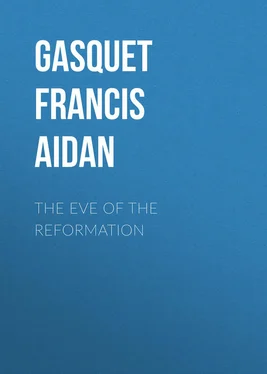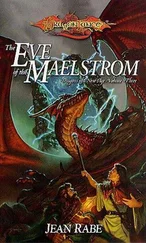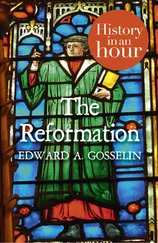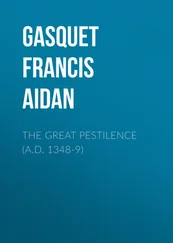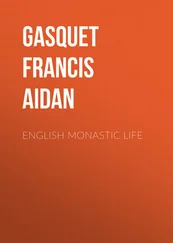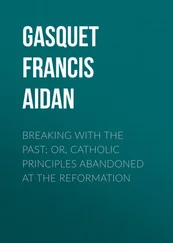Francis Gasquet - The Eve of the Reformation
Здесь есть возможность читать онлайн «Francis Gasquet - The Eve of the Reformation» — ознакомительный отрывок электронной книги совершенно бесплатно, а после прочтения отрывка купить полную версию. В некоторых случаях можно слушать аудио, скачать через торрент в формате fb2 и присутствует краткое содержание. Жанр: foreign_antique, foreign_prose, на английском языке. Описание произведения, (предисловие) а так же отзывы посетителей доступны на портале библиотеки ЛибКат.
- Название:The Eve of the Reformation
- Автор:
- Жанр:
- Год:неизвестен
- ISBN:нет данных
- Рейтинг книги:3 / 5. Голосов: 1
-
Избранное:Добавить в избранное
- Отзывы:
-
Ваша оценка:
- 60
- 1
- 2
- 3
- 4
- 5
The Eve of the Reformation: краткое содержание, описание и аннотация
Предлагаем к чтению аннотацию, описание, краткое содержание или предисловие (зависит от того, что написал сам автор книги «The Eve of the Reformation»). Если вы не нашли необходимую информацию о книге — напишите в комментариях, мы постараемся отыскать её.
The Eve of the Reformation — читать онлайн ознакомительный отрывок
Ниже представлен текст книги, разбитый по страницам. Система сохранения места последней прочитанной страницы, позволяет с удобством читать онлайн бесплатно книгу «The Eve of the Reformation», без необходимости каждый раз заново искать на чём Вы остановились. Поставьте закладку, и сможете в любой момент перейти на страницу, на которой закончили чтение.
Интервал:
Закладка:
I avoided this definition purposely, he continues, so as not “to entangle the matter with the two questions at once, for I knew well that the Church being proved this common known Catholic congregation of all Christian nations abiding together in one faith, neither fallen nor cut off; there might, peradventure, be made a second question after that, whether over all this Catholic Church the Pope must needs be head and chief governor and chief spiritual shepherd, or whether, if the unity of the faith was kept among them all, every province might have its own spiritual chief over itself, without any recourse unto the Pope…
“For the avoiding of all such intricacies, I purposely abstained from putting the Pope as part of the definition of the Church, as a thing that was not necessary; for if he be the necessary head, he is included in the name of the whole body, and whether he be or not is a matter to be treated and disputed of besides” (p. 615). As to Tyndale’s railing against the authority of the Pope because there have been “Popes that have evil played their parts,” he should remember, says More, that “there have been Popes again right holy men, saints and martyrs too,” and that, moreover, the personal question of goodness or badness has nothing to say to the office. 102 102 English Works , p. 616.
In like manner, More, when arguing against Friar Barnes, says that like the Donatists “these heretics call the Catholic Christian people papists,” and in this they are right, since “Saint Austin called the successor of Saint Peter the chief head on earth of the whole Catholic Church, as well as any man does now.” He here plainly states his view of the supremacy of the See of Rome. 103 103 Ibid., p. 798.
He accepted it not only as an antiquarian fact, but as a thing necessary for the preservation of the unity of the Faith. Into the further question whether the office of supreme pastor was established by Christ Himself, or, as theologians would say, de jure divino , or whether it had grown with the growth and needs of the Church, More did not then enter. The fact was sufficient for him that the only Christian Church he recognised had for long ages regarded the Pope as the Pastor pastorum , the supreme spiritual head of the Church of Christ. His own words, almost at the end of his life, are the best indication of his mature conclusion on this matter. “I have,” he says, “by the grace of God, been always a Catholic, never out of communion with the Roman Pontiff; but I have heard it said at times that the authority of the Roman Pontiff was certainly lawful and to be respected, but still an authority derived from human law, and not standing upon a divine prescription. Then, when I observed that public affairs were so ordered that the sources of the power of the Roman Pontiff would necessarily be examined, I gave myself up to a diligent examination of that question for the space of seven years, and found that the authority of the Roman Pontiff, which you rashly – I will not use stronger language – have set aside, is not only lawful to be respected and necessary, but also grounded on the divine law and prescription. That is my opinion, that is the belief in which, by the grace of God, I shall die.” 104 104 Henry VIII. and the English Monasteries (popular edition), p. 367.
Looking at More’s position in regard to this question in the light of all that he has written, it would seem to be certain that he never for a moment doubted that the Papacy was necessary for the Church. He accepted this without regard to the reasons of the faith that was in him, and in this he was not different from the body of Englishmen at large. When, in 1522, the book by Henry VIII. appeared against Luther, it drew the attention of Sir Thomas specially to a consideration of the grounds upon which the supremacy of the Pope was held by Catholics. As the result of his examination he became so convinced that it was of divine institution that “my conscience would be in right great peril,” he says, “if I should follow the other side and deny the primacy to be provided of God.” Even before examination More evidently held implicitly the same ideas, since in his Latin book against Luther, published in 1523, he declared his entire agreement with Bishop Fisher on the subject. That the latter was fully acquainted with the reasons which went to prove that the Papacy was of divine institution, and that he fully accepted it as such, is certain. 105 105 In his work against Luther, Bishop Fisher teaches the supremacy of the Pope without any ambiguity. In the Sermon had at Paulis against Luther and his followers, he also put his position perfectly clearly. The Church that has a right to the name Catholic has derived the right from its communion with the See of Peter. Our Lord called Cephas, Peter, or rock, to signify that upon him as a rock He would build His church. Unto Peter He committed His flock, and “the true Christian people which we have at this day was derived by a continual succession from the See of Peter” (fol. e. 4. d.).
When, with the failure of the divorce proceedings, came the rejection of Papal supremacy in England, there were plenty of people ready to take the winning side, urging that the rejection was just, and not contrary to the true conception of the Christian Church. It is interesting to note that in all the pulpit tirades against the Pope and what was called his “usurped supremacy,” there is no suggestion that this supremacy had not hitherto been fully and freely recognised by all in the country. On the contrary, the change was regarded as a happy emancipation from an authority which had been hitherto submitted to without question or doubt. A sermon preached at St. Paul’s the Sunday after the execution of the Venerable Bishop Fisher, and a few days before Sir Thomas More was called to lay down his life for the same cause, is of interest, as specially making mention of these two great men, and of the reasons which had forced them to lay down their lives in the Pope’s quarrel. The preacher was one Simon Matthew, and his object was to instruct the people in the new theory of the Christian Church necessary on the rejection of the headship of the Pope. “The diversity of regions and countries,” he says, “does not make any diversity of churches, but a unity of faith makes all regions one Church.” “There was,” he continued, “no necessity to know Peter, as many have reckoned, in the Bishop of Rome, (teaching) that except we knew him and his holy college, we could not be of Christ’s Church. Many have thought it necessary that if a man would be a member of the Church of Christ, he must belong to the holy church of Rome and take the Holy Father thereof for the supreme Head and for the Vicar of Christ, yea for Christ Himself, (since) to be divided from him was even to be divided from Christ.” This, the preacher informs his audience, is “damnable teaching,” and that “the Bishop of Rome has no more power by the laws of God in this realm than any foreign bishop.”
He then goes on to speak of what was, no doubt, in everybody’s mind at the time, the condemnation of the two eminent Englishmen for upholding the ancient teachings as to the Pope’s spiritual headship. “Of late,” he says, “you have had experience of some, whom neither friends nor kinsfolk, nor the judgment of both universities, Cambridge and Oxford, nor the universal consent of all the clergy of this realm, nor the laws of the Parliament, nor their most natural and loving prince, could by any gentle ways revoke from their disobedience, but would needs persist therein, giving pernicious occasion to the multitude to murmur and grudge at the king’s laws, seeing that they were men of estimation and would be seen wiser than all the realm and of better conscience than others, justifying themselves and condemning all the realm besides. These being condemned and the king’s prisoners, yet did not cease to conceive ill of our sovereign, refusing his laws, but even in prison wrote to their mutual comfort in their damnable opinions. I mean Doctor Fisher and Sir Thomas More, whom I am as sorry to name as any man here is to hear named: sorry for that they, being sometime men of worship and honour, men of famous learning and many excellent graces and so tenderly sometime beloved by their prince, should thus unkindly, unnaturally, and traitorously use themselves. Our Lord give them grace to be repentant! Let neither their fame, learning, nor honour move you loving subjects from your prince; but regard ye the truth.”
Читать дальшеИнтервал:
Закладка:
Похожие книги на «The Eve of the Reformation»
Представляем Вашему вниманию похожие книги на «The Eve of the Reformation» списком для выбора. Мы отобрали схожую по названию и смыслу литературу в надежде предоставить читателям больше вариантов отыскать новые, интересные, ещё непрочитанные произведения.
Обсуждение, отзывы о книге «The Eve of the Reformation» и просто собственные мнения читателей. Оставьте ваши комментарии, напишите, что Вы думаете о произведении, его смысле или главных героях. Укажите что конкретно понравилось, а что нет, и почему Вы так считаете.
